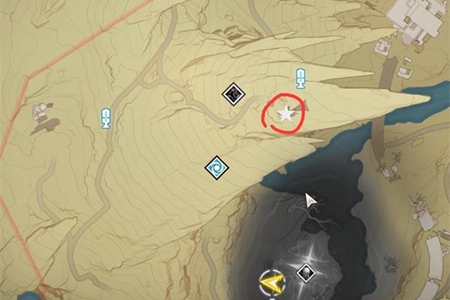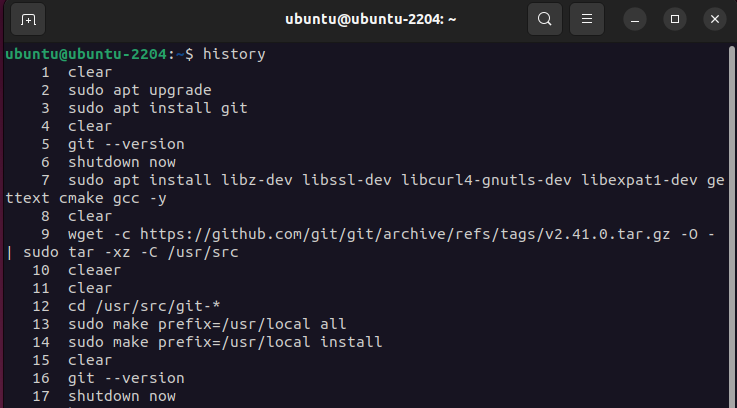
The origin and evolution of Discuz
Discuz is a well-known open source forum system that is widely used in websites, communities and other fields. Its origins can be traced back to 2001, when it was launched by Chinese IT company Comsenz and was originally named "Unnamed Forum". With the passage of time and the changing needs of users, the forum system has undergone multiple version updates and function optimizations, gradually evolving into the Discuz we all know today.
Origin stage: In 2001, Wuming Forum was born
The original intention of Wuming Forum (developed using PHP language) was to provide a convenient discussion platform for netizens to share opinions and exchange experiences. The code structure of this forum system is relatively simple, but its functions are practical, attracting many webmasters to choose to use it. The following is a simple sample code that shows how to create a simple post:
<?php
// 连接数据库
$conn = mysqli_connect("localhost", "username", "password", "database");
// 插入帖子数据
$title = "这是一个帖子标题";
$content = "这是帖子内容";
$time = time();
$sql = "INSERT INTO posts (title, content, time) VALUES ('$title', '$content', '$time')";
mysqli_query($conn, $sql);
echo "帖子发布成功!";
?>Evolution stage: functions are continuously iterated and versions are upgraded
With the development of the Internet and users' requirements for forum system functions As the demand continued to increase, Wuming Forum gradually changed its name to Discuz, and continuously launched new versions, adding more practical functions. For example, functions such as user rights management, plug-in extensions, and theme customization have been added, allowing webmasters to customize their forums more flexibly. The following is a sample code that shows how to add comment functionality to a post:
<?php
// 获取帖子ID
$post_id = $_GET['post_id'];
// 连接数据库
$conn = mysqli_connect("localhost", "username", "password", "database");
// 插入评论数据
$content = "这是一条评论";
$time = time();
$sql = "INSERT INTO comments (post_id, content, time) VALUES ('$post_id', '$content', '$time')";
mysqli_query($conn, $sql);
echo "评论发布成功!";
?>Current stage: Discuz evolves into a diverse community communication platform
Today's Discuz has developed into a powerful, stable A reliable community communication platform that supports multiple languages and databases and can meet the needs of different regions and user groups. In a modern development environment, Discuz's code architecture is more optimized, its performance is more stable, and its functions are richer. Webmasters can easily manage forum content, user information, etc. through the backend management system. The following is a sample code that shows how to delete a post:
<?php
// 获取帖子ID
$post_id = $_GET['post_id'];
// 连接数据库
$conn = mysqli_connect("localhost", "username", "password", "database");
// 删除帖子数据
$sql = "DELETE FROM posts WHERE id = $post_id";
mysqli_query($conn, $sql);
echo "帖子删除成功!";
?>Summary:
By tracing the origin and evolution of Discuz, we can see that this open source forum system is constantly being optimized and upgraded. Continuously meet user needs and provide users with a good discussion and communication platform. In the future, with the continuous development of technology, I believe Discuz will continue to launch more new functions, constantly improve itself, and become a more powerful and diversified community communication platform.
The above is the detailed content of The Origin and Evolution of Discuz. For more information, please follow other related articles on the PHP Chinese website!
 鸣潮沉没的历史5个灯塔位置介绍Mar 07, 2024 pm 03:58 PM
鸣潮沉没的历史5个灯塔位置介绍Mar 07, 2024 pm 03:58 PM您是否正在寻找《鸣潮沉没的历史》任务中的五个灯塔?本篇攻略将为您详尽解读这些待发现的灯塔所在之地。我们期望这能助您快速找到所需灯塔,顺利完成任务!鸣潮沉没的历史5个灯塔位置介绍具体位置一览:1、第一座灯塔:请您前往荒石高地,位于北落野正上方处。2、第二座灯塔:接下来请您赴中曲台地,在东北侧传送点周围便可寻见。3、第三座灯塔:请到虎口山脉东南方位,沿着无明湾即可找到。4、第四座灯塔:请您前往怨鸟泽东南方路端传送点,接近山崖之处。5、第五座灯塔:请至无光之森第一无音区,悬崖边缘即为所寻。
 如何查看和管理 Linux 命令历史记录Aug 01, 2023 pm 09:17 PM
如何查看和管理 Linux 命令历史记录Aug 01, 2023 pm 09:17 PM如何在Linux中查看命令历史记录在Linux中,我们使用history命令来查看所有以前执行的命令的列表。它有一个非常简单的语法:history与历史记录命令配对的一些选项包括:选项描述-c清除当前会话的命令历史记录-w将命令历史记录写入文件-r从历史记录文件重新加载命令历史记录-n限制最近命令的输出数量只需运行history命令即可在Linux终端中查看所有以前执行的命令的列表:除了查看命令历史记录之外,您还可以管理命令历史记录并执行修改先前执行的命令、反向搜索命令历史记录甚至完全删除历史记
 使用Vue开发中遇到的登录验证和用户权限管理问题Oct 09, 2023 am 10:12 AM
使用Vue开发中遇到的登录验证和用户权限管理问题Oct 09, 2023 am 10:12 AM使用Vue开发中遇到的登录验证和用户权限管理问题,需要具体代码示例在Vue的开发过程中,登录验证和用户权限管理是一个非常重要的问题。当用户登录系统时,需要对其进行验证,并根据不同的权限级别,决定用户能够访问的页面和功能。下面将结合具体的代码示例,介绍如何在Vue中实现登录验证和用户权限管理。登录验证登录验证是保证系统安全性的重要环节。在前端开发中,我们通常会
 如何利用Laravel实现用户权限管理功能Nov 02, 2023 pm 02:09 PM
如何利用Laravel实现用户权限管理功能Nov 02, 2023 pm 02:09 PM如何利用Laravel实现用户权限管理功能随着Web应用程序的发展,用户权限管理在许多项目中变得越来越重要。Laravel作为流行的PHP框架,为处理用户权限管理提供了许多强大的工具和功能。本文将介绍如何使用Laravel实现用户权限管理功能,并提供具体的代码示例。数据库设计首先,我们需要设计一个数据库模型来存储用户、角色和权限的关系。为了简化操作,我们将使
 Go语言的历史发展及重要里程碑Apr 04, 2024 am 08:12 AM
Go语言的历史发展及重要里程碑Apr 04, 2024 am 08:12 AMGo语言由谷歌开发,最初于2007年构思,2012年发布1.0版本。其关键里程碑包括:2012年:发布Go1.0,引入并发性、内存安全和垃圾回收。2020年:Go2发布,引入模块化、协程改进和对泛型和错误处理的支持。2022年:Go1.19发布,提供性能优化和对泛型类型和一起函数的支持。
 如何利用PHP开发一个简单的用户权限管理功能Sep 25, 2023 pm 12:30 PM
如何利用PHP开发一个简单的用户权限管理功能Sep 25, 2023 pm 12:30 PM如何利用PHP开发一个简单的用户权限管理功能引言:随着互联网的发展,用户权限管理功能变得越来越重要。PHP作为一种流行的服务器端脚本语言,被广泛应用于开发动态网站。利用PHP开发一个简单的用户权限管理功能,可以帮助网站管理员灵活地控制用户的访问权限,保护网站的安全性。本文将介绍如何使用PHP来实现这样的功能,并提供具体的代码示例。一、数据库设计首先,我们需要
 从历史角度看Go语言的发展和演进Mar 29, 2024 am 11:51 AM
从历史角度看Go语言的发展和演进Mar 29, 2024 am 11:51 AM标题:Go语言的历史发展与演进自2009年由Google推出以来,Go语言(又称Golang)在软件开发领域迅速崛起,成为许多开发者钟爱的编程语言之一。Go语言的设计初衷是为了提高程序员的生产力,同时抹平一些传统编程语言的缺陷,如内存泄漏、并发安全等问题。在逐渐成熟的过程中,Go语言在发展和演进中经历了许多里程碑式的事件。本文将从历史角度探讨Go语言的发展和
 快手历史亲密关系怎么看Apr 01, 2024 pm 04:51 PM
快手历史亲密关系怎么看Apr 01, 2024 pm 04:51 PM快手历史亲密关系允许用户将自己与特定好友之间的亲密程度标注在用户资料页上,从而展示出彼此之间的亲密关系,但是历史上的关系怎么看呢?如果你想知道的话,小编今天分享的教程你可以学习下吧。快手历史亲密关系查看方法第一步、打开快手个人主页,点击上方【亲密关系】图标。第二步、进入我的亲密朋友界面,点击亲密好友右侧【亲密值】图标。第三步、进入亲密值详情页,找到【亲密印记】卡片,即可查看建立亲密关系时间。


Hot AI Tools

Undresser.AI Undress
AI-powered app for creating realistic nude photos

AI Clothes Remover
Online AI tool for removing clothes from photos.

Undress AI Tool
Undress images for free

Clothoff.io
AI clothes remover

AI Hentai Generator
Generate AI Hentai for free.

Hot Article

Hot Tools

SAP NetWeaver Server Adapter for Eclipse
Integrate Eclipse with SAP NetWeaver application server.

Dreamweaver Mac version
Visual web development tools

SecLists
SecLists is the ultimate security tester's companion. It is a collection of various types of lists that are frequently used during security assessments, all in one place. SecLists helps make security testing more efficient and productive by conveniently providing all the lists a security tester might need. List types include usernames, passwords, URLs, fuzzing payloads, sensitive data patterns, web shells, and more. The tester can simply pull this repository onto a new test machine and he will have access to every type of list he needs.

SublimeText3 Linux new version
SublimeText3 Linux latest version

EditPlus Chinese cracked version
Small size, syntax highlighting, does not support code prompt function





